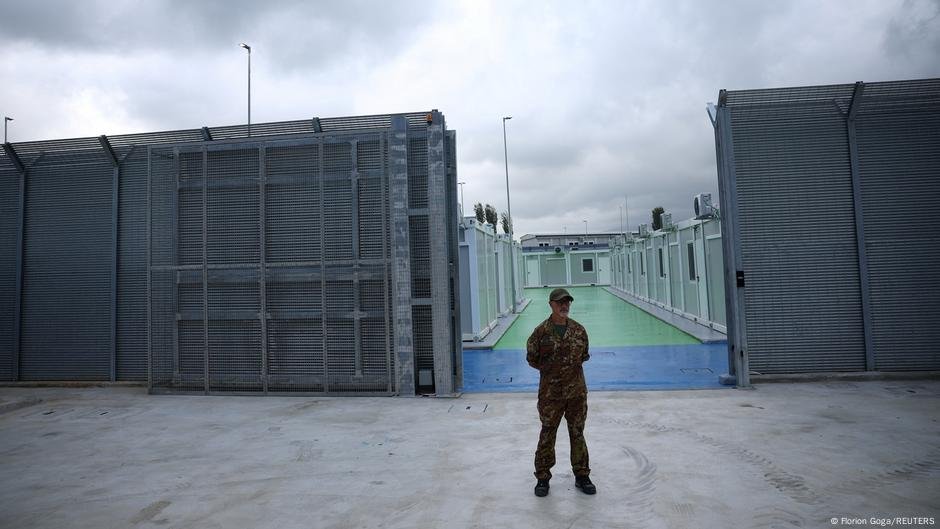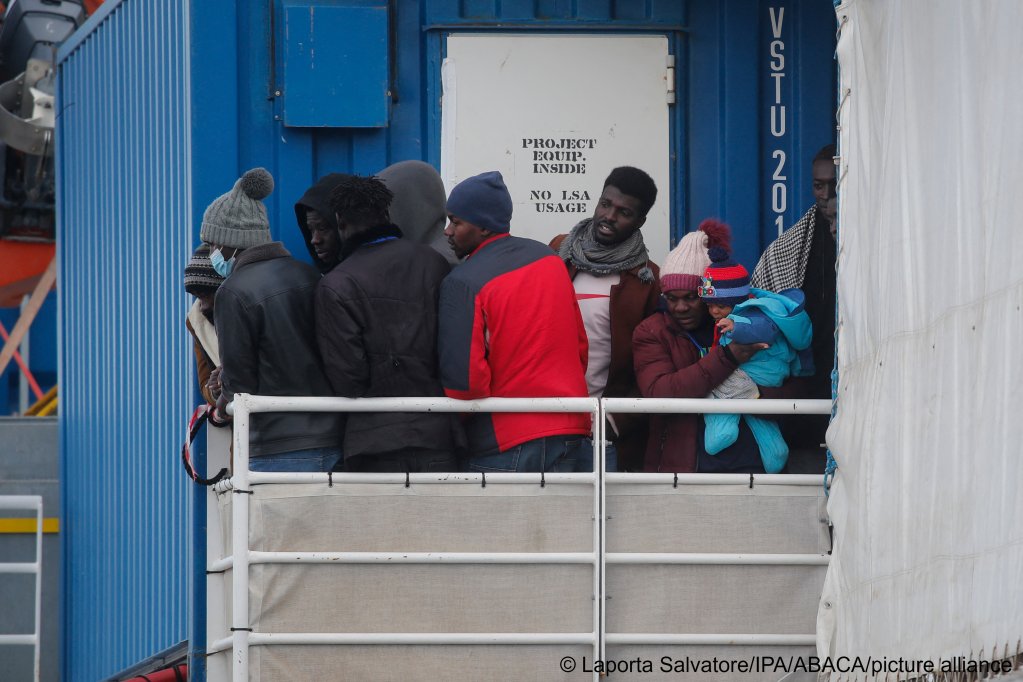Data indicates that an unaccompanied minor is typically male between the ages of 14-17 and usually from Syria or Afghanistan. The plans by the Dutch government form part of a growing trend across EU countries that are exploring sending migrants to third countries outside of the European bloc.
The Dutch government wants children whose claims for asylum have been rejected to wait for their repatriation to their countries of origin in 'return hubs' outside of the European Union, Dutch public broadcaster Nieuwsuur reported on Wednesday, April 23.
The government reportedly wrote this proposal in response to the Return Regulation, a European Union-wide proposal that aims to establish a common system for the return of third-country nationals who do not or no longer have authorization to stay in the EU.
The proposed Return Regulation, which is set to be negotiated soon, describes 'return hubs' as innovative solutions to manage migration. The establishment of return hubs is stated to be through bilateral agreements at the EU level with third countries. Countries that are designated as sites for return hubs must respect international human rights standards and principles. However, the proposed Return Regulation in its current form states that families with minors and unaccompanied minors are excluded from being sent to return hubs.
Speaking to Nieuwsuur, Hanne Beirens, affiliated with the Migration Policy Institute Europe said that the plans deliberately remain vague, giving countries the legal basis to "experiment with deportation to countries outside the EU".
Rights groups fear arbitrary detention
The Platform for International Cooperation on Undocumented Migrants (PICUM), a network of organizations advocating for migrant rights, slammed the concept of return hubs as 'problematic deportation centers'.
In an email, Silvia Carta, PICUM Advocacy Officer, told InfoMigrants, ''Should these centers become reality, we can expect arbitrary detention, issues around accountability and human rights monitoring, people left in limbo and risks of chain deportations towards unsafe countries and numerous other violations of human rights and international law.''
PICUM advocated for regularization measures that allow safe and stable residence permits to people in precarious situations, and migration policies that allow people to come to Europe in safety and dignity.
''Instead of obsessing over deportations, Europe should start to seriously think about a fair and inclusive future for its societies,'' Carta said.
Read AlsoDo Europe's restrictive migration policies really work? And at what cost?
Uganda, Rwanda, Albania, list of growing countries
Last year, Dutch Prime Minister Dick Schoof announced that plans to explore Uganda as a return hub for migrants from Africa were underway. The move is part of a growing trend where the EU is looking to outsource asylum procedures to other countries.

Italy constructed two migrant centers in Albania, where male migrants intercepted by Italian boats at sea were meant to be processed. Although the centers were launched in April last year and, after a temporary suspension, remain operational, their future is unclear due to many legal challenges and criticism from rights groups regarding the treatment of migrants and the legality of processing asylum seekers outside EU borders.
Before the Labour Party took over in the UK, the country had penned an agreement to build an offshore asylum processing center in Rwanda. However, the Supreme Court in November 2023 ruled the plan unlawful, citing concerns that deporting asylum seekers to Rwanda would breach British and international human rights laws. The plan was ultimately scrapped by the Labour government in July 2024 and was never implemented.
Read AlsoMigrant offshoring: the EU's plan to deport more rejected asylum seekers under scrutiny
Growing number of unaccompanied minors
Data compiled by the European Agency for Asylum showed that in 2022, approximately 42,000 applications for asylum were lodged by unaccompanied minors across EU+ countries -- the highest number recorded since 2016.
Nationals from Afghanistan and Syria accounted for more than two-thirds of all applications filed by unaccompanied minors and an overwhelming estimated 93 percent of all unaccompanied minors were between the ages of 14 to 17 years old.
In terms of receiving countries, five EU+ countries were recorded to have issued about three-quarters of all first instance decisions on asylum applications submitted by unaccompanied minors. The Netherlands was recorded as the lowest of the top 5 countries, issuing about 11 percent of decisions, while Germany ranked as the top country, issuing an estimated 23 percent of decisions.

In the Netherlands, the number of first-instance decisions issued to unaccompanied minors increased by over two-thirds from 2021. More than half of these decisions were issued to Syrians. Decisions issued to Eritreans, Iraqis and Somalis accounted for about one-tenth each. Across this group, most issued decisions were positive, meaning the applicants were granted refugee status or subsidiary protection.
According to the United Nations Children's Fund (UNICEF), the reasons that a child may be separated from family during their journey or are traveling alone include accidental separation over the course of their journey and searching for better economic opportunities.
UNICEF highlighted that in addition to the risks of sexual exploitation and abuse and child labor, the vulnerability of child migrants who are unaccompanied or separated from their families is compounded by the procedures and processes embedded in the asylum system. For example, UNICEF reported, some are admitted into the asylum system but are denied access to asylum procedures. In other cases, asylum claims are not handled in an age and gender-sensitive manner.
Read AlsoFrance: Parliamentary report slams 'low-cost care' for unaccompanied foreign minors
Numerous forms of violence
A recent investigation by the public broadcasting organization BNNVARA revealed the deplorable conditions of unaccompanied minor asylum seekers in the Netherlands' reception system. Abdessamad Bouabid, Assistant Professor of Criminology at the Erasmus School of Law, was cited in the report regarding a 2019 study on violence in state-run shelters. According to Bouabid, various forms of violence were observed, but two stood out. First was physical violence between residents as a result of everyday conflicts, disagreements, and tensions. Second was acts of self-harm, including going on hunger strike, or, in extreme cases, attempting suicide.
The BNNVARA investigation cited Dutch migration policy as a factor that contributes to violence in care spaces for unaccompanied minors, saying "The Netherlands applies a strict migration regime that results in long waiting times. This generates stress, tension, and uncertainty. It’s a collective experience – you are not the only one in the asylum procedure, not the only one waiting for family reunification. These circumstances create fertile ground for frustration and tension.”
In response to the findings, the Dutch Health and Youth Care Inspectorate initiated a formal investigation into the state-funded organization responsible for the care of minors.
